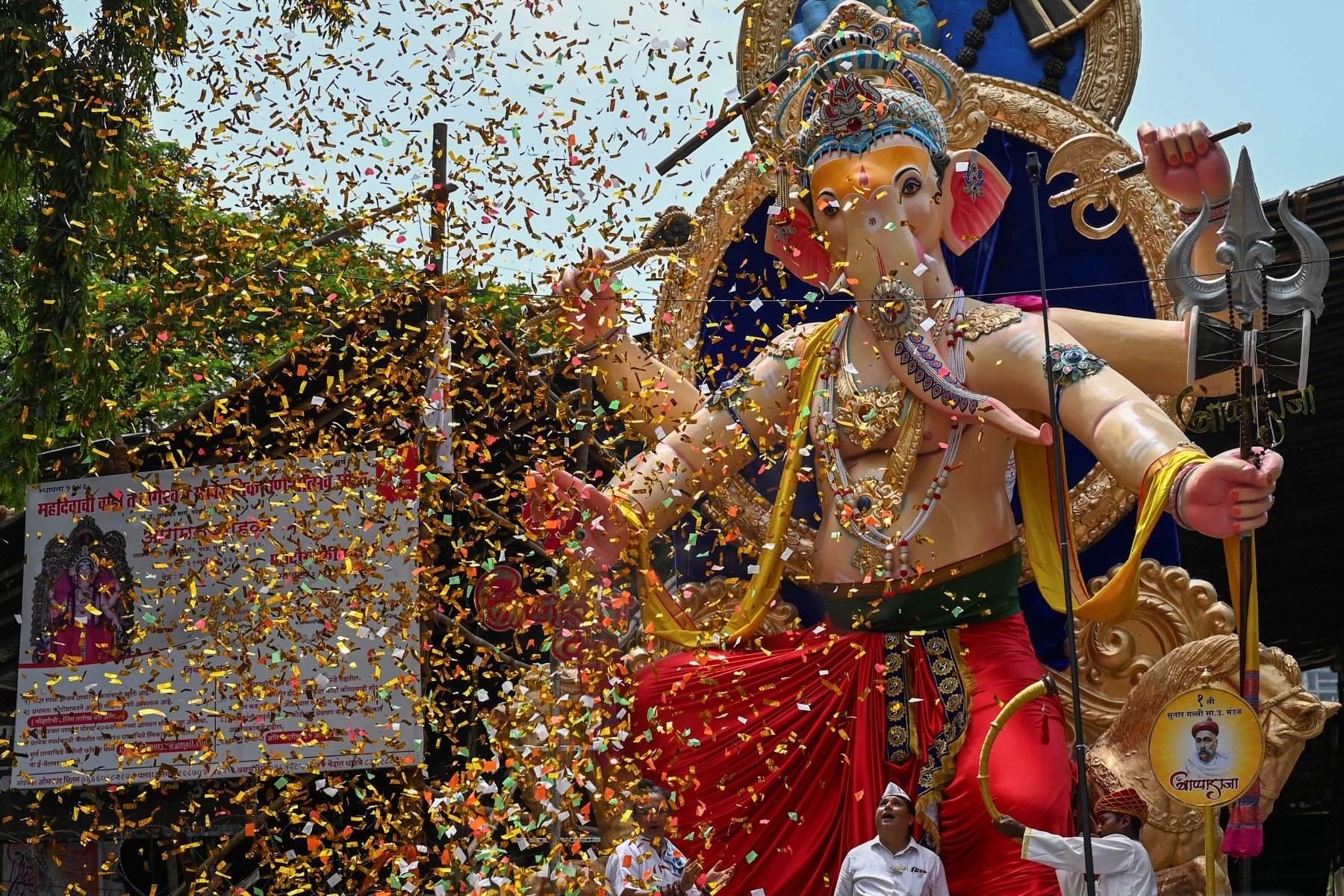Workers caked in plaster are putting the finishing touches to storeys-high statues of the elephant god Ganesha in time for one of India’s biggest religious festivals, now jumbo-sized again after COVID.
The 11-day Ganesh Chaturthi festival, which draws tens of thousands of Hindu devotees onto streets across the seaside megacity of Mumbai, begins on Wednesday.
For two years authorities restricted the heights of the idols to cut crowd sizes but now they can be nine meters (30 feet) tall or more, requiring dozens of people to carry them.
That has prompted orders to start streaming back, said four-decade idol-maker Bharat Masurkar as he sat among dozens of unfinished red, green, and gold-clothed statues made of clay or plaster.
“This year, clay and PoP (plaster of Paris) are back with full excitement,” the 59-year-old told AFP at his busy workshop.
“Business was terrible for two years.”
Around the corner at a tent where extra-large Ganesha idols are made, seasonal staff clamber up wooden scaffolding to work on the figures.
Workers toil for up to 15 hours a day, said Raju Patel, 46, who has travelled 2,000 kilometres (1,200 miles) from Bihar to Mumbai every year since 1996 to spend four months there earning money.
“We don’t get time to talk to our family members at home,” Patel told AFP.
Plaster’s uncertain future
The giant idols are made from plaster of Paris — a durable and lightweight material that allows them to be easily transported via road.
Most of the idols are carried from the workshops to the neighbourhoods that order them on hand-pulled carts, kicking off hours-long street parties that attract thousands of dancing devotees.
Clay, due to its weight and fragility, cannot be used to make the larger idols, the artisans say, and papier-mache statues are vulnerable to getting soaked during the monsoon.
The festival climaxes with processions that end at bodies of water including the Arabian Sea to immerse the elephant gods.
PoP idols do not dissolve and wash up on shores afterwards. Environmentalists say they cause water pollution and harm marine life.
Growing concern about the environmental impact has led authorities to declare they will be banned in Mumbai from next year.
But a similar edict announced for this year’s festival was rescinded, with PoP statues allowed if they are immersed in man-made lakes.
The seasonal workers, battling to fulfil last-minute orders, have no time to discuss the elephant in the room — the future of the large plaster idols that help them earn their keep.
“Someone who works with PoP would die of hunger,” Masurkar said of the impact of a ban.
“They come here from many villages (in Bihar). They won’t be able to find work.”







